20+ SAMPLE Educational Proposal
-
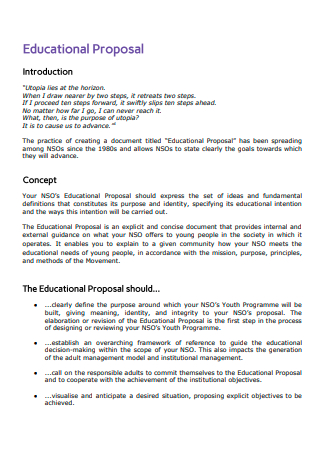
Educational Proposal Template
download now -
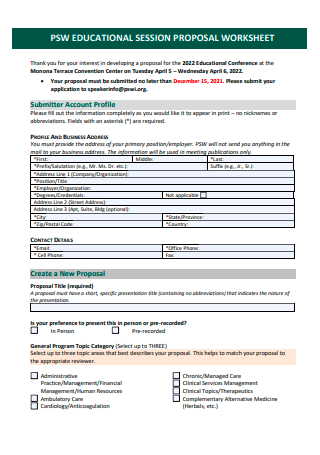
Educational Session Proposal Worksheet
download now -
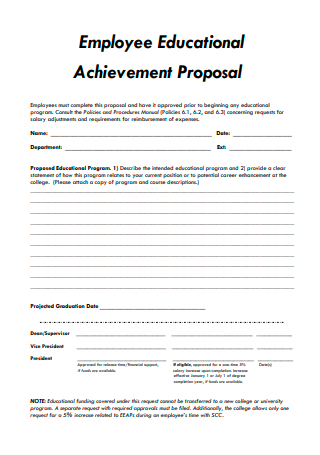
Employee Educational Achievement Proposal
download now -
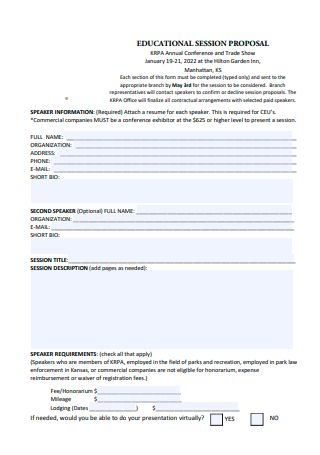
Educational Session Proposal
download now -
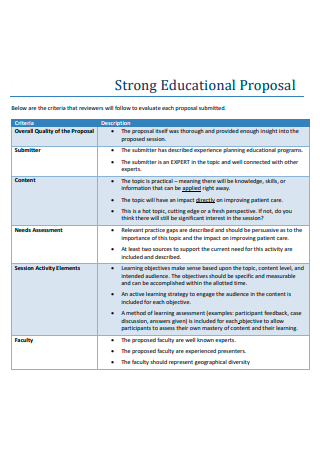
Strong Educational Proposal
download now -
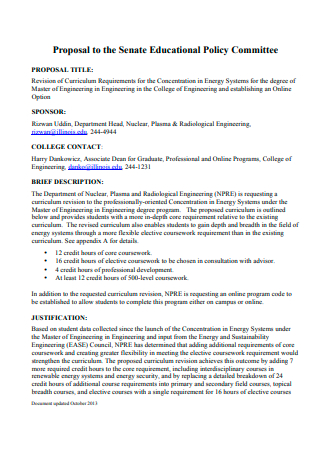
Educational Policy Committee Proposal
download now -
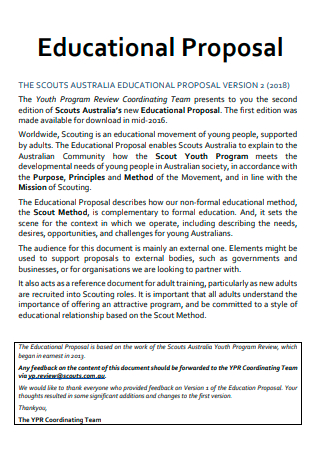
Basic Educational Proposal
download now -
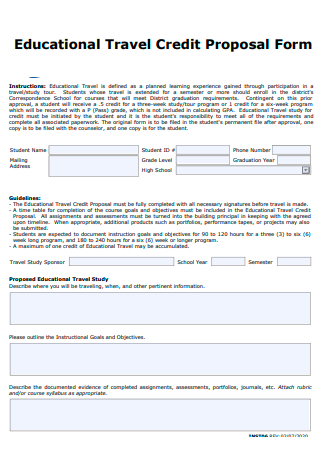
Educational Travel Credit Proposal Form
download now -
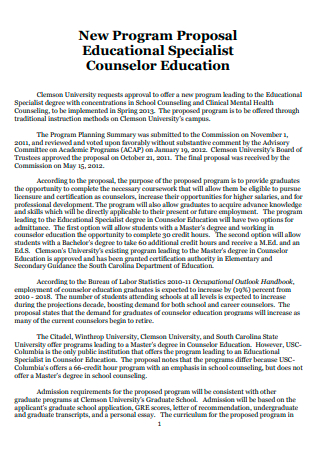
Educational Specialist New Program Proposal
download now -
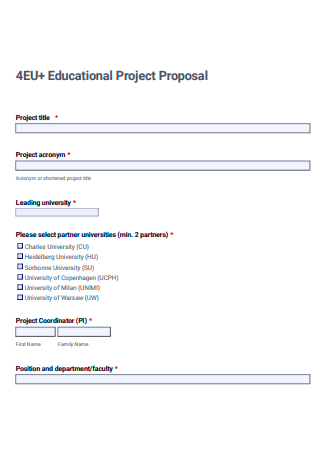
Educational Project Proposal
download now -
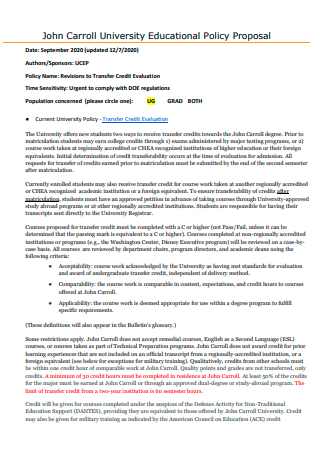
University Educational Policy Proposal
download now -
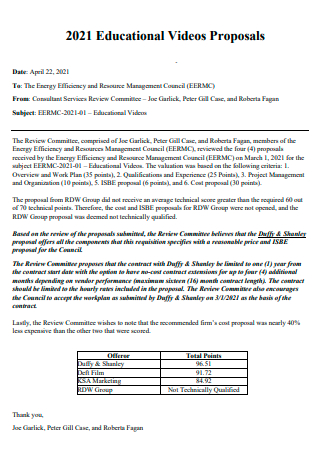
Educational Videos Proposal
download now -
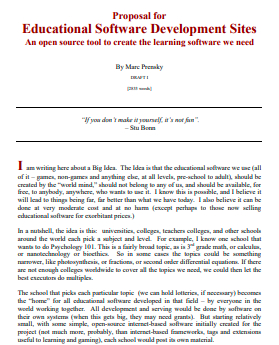
Educational Software Development Sites Proposal
download now -
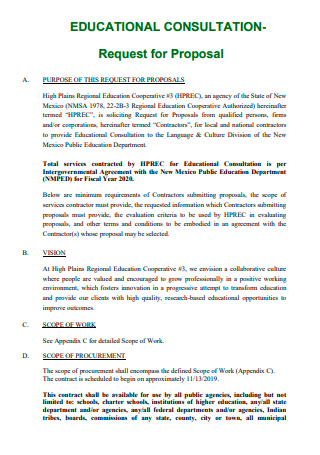
Educational Consultation Proposal
download now -
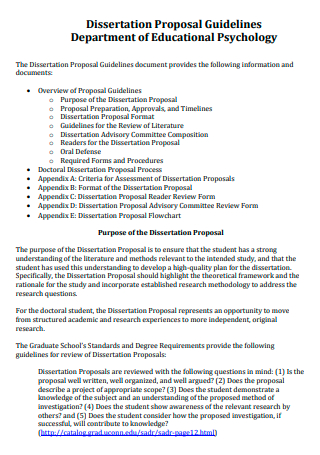
Educational Psychology Dissertation Proposal
download now -
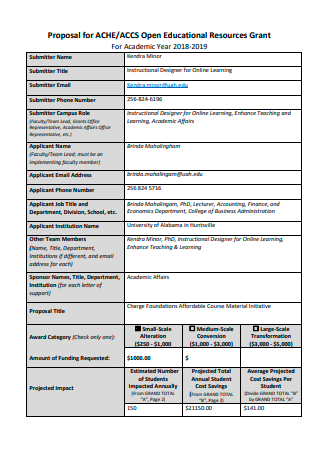
Educational Resource Grant Proposal
download now -
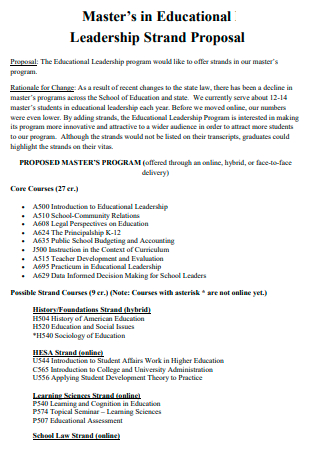
Masters in Educational Leadership Proposal
download now -
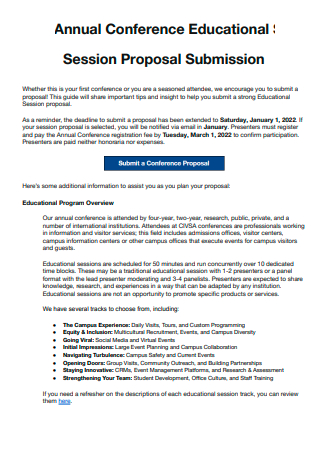
Annual Conference Educational Session Proposal Submission
download now -
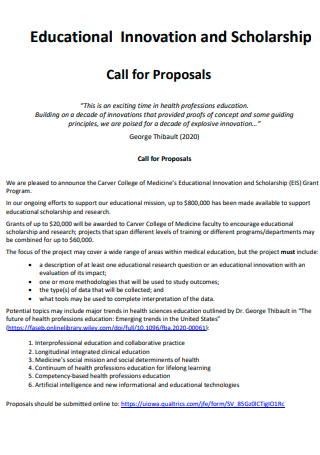
Educational Innovation and Scholarship Call for Proposal
download now -
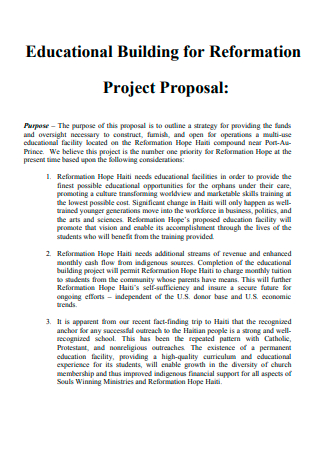
Educational Building for Reformation Project Proposal
download now -
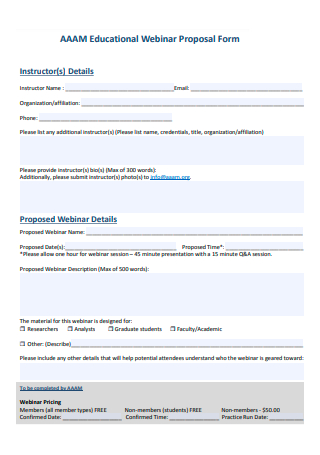
Educational Webinar Proposal Form
download now
FREE Educational Proposal s to Download
20+ SAMPLE Educational Proposal
What is an Education Proposal?
Different Types of Education Proposals
Basic Elements of an Education Proposal
How to Create an Education Program Proposal
FAQs
What are some examples of education proposals?
What is the purpose of education programs?
What are the different types of educational curriculum?
What are the primary goals of the education programs?
What is an Education Proposal?
A proposal for an education program is a concise, well-structured written document that briefly describes the education program’s objectives, questions, resource requirements and budget, systematic plan for the education program, project methodology and communication plan, and the education program’s benefits. It is a critical communication tool for establishing and managing an educational program since it provides an unified summary of the educational program’s activities, projects, and other components. Additionally, it is critical in aiding prospective students or educational administration personnel in making rational judgments regarding the development and implementation of the proposed education program.
According to a data report published by Institute of Education Sciences (IES) last January 2022, 97% of public schools offered full-time in-person instruction, while 40% offered remote and 7% offered hybrid instruction. Approximately all or 99% of public schools have required students to quarantine. Due to the ongoing COVID-19 pandemic, most of the teachers and students are badly affected. Despite the challenges brought by the pandemic, this situation opened other modes of teaching and learning methods like the introduction or integration of new technologies into the education system such as blended learning methods, and collaborations between students and teachers regardless of geography, socio-economic background, or any other factors. Thus, all types of academic or education program managers, educators, trainers, and other teaching professionals in wide-ranging fields and industries should be able to construct project proposal business letters and documents for the specific education programs and educational curriculum programs they need to initiate and fulfill.
Different Types of Education Proposals
Rochester Institute of Technology (RIT) identified five educational objectives for academic program and curriculum management: critical thinking, global interconnectedness, ethical reasoning, integrated literacies, and creative and innovative thinking. Critical thinking refers to the ability to comprehend and evaluate complicated themes and topics, information, arguments, facts, and theories, among other things. Global interconnectivity refers to the capacity to comprehend and perform in an increasingly multicultural, transnational, yet interconnected world. Ethical reasoning is the process by which students gain the capacity to recognize and engage critically with the ethical implications of their thoughts, knowledge, and conduct. We invite you to educate yourself and have an understanding of the many sorts of education program suggestions. To assist you in this endeavor, the following details are provided:
1. Education Television Proposal
Sesame Street, Little Einsteins, Cat in the Hat Knows a Lot About That!, Martha Speaks, Disney Earth, Bill Nye the Science Guy, MythBusters, Sid the Science Kid, Ask the Storybots, and WordWorld are some examples of education television programs that are provided for children to establish the groundwork for their educational future while using their valuable time in front of a TV screen to get beneficial knowledge. Are you planning to create a new education television program? Write the abstract, introduction, methods and strategies, desired outcomes, and plan for the education television program in your proposal. For the abstract, indicate that the educational television program you will develop is fully intended to reach the students of any organization or any education establishment as the teachers and instructors work in cooperation to increase the quality of the educational TV programs. For the introduction part, explain the major goals, objectives and specific issues that will be addressed through the completion and success of the educational TV program.
2. Higher Education Proposal
Brent D. Ruben, Richard De Lisi and Ralph A. Gigliotti wrote in the book A Guide for Leaders in Higher Education that the design and implementation of organizational strategy in higher education programs provide another potential source of influence for leaders and the strategies can be operationalized through the establishment of organizational plans, aspirations, priorities, values, and leadership targets, or new initiatives. Leaders in higher education have opportunities to create and embed their sense of organizational needs, priorities, and values within their operating systems. If you are planning to offer a program leading to the Master of Education in Higher Education Leadership, write an enticing and well-coordinated education program proposal by clearly explaining that the program will provide a route for many different higher education career pathways and create a faster timeline to employment. Indicare the core curriculum of the education program and highlight in your proposal that the proposed higher education program is a more cost-effective pathway to achieving job success.
3. Global Education Proposal
Based on a statistical report, around 90% of the global population had completed a primary education in 2020, whereas only 66% had attained a secondary education. The numbers were even lower in tertiary education, with around 40% of the global population having attained some kind of tertiary education. When you prepare a project proposal for a global education program, provide the major information such as the cover summary, general information of the global education program, brief summary of the global education program design, mission and goals of the global education program, and the global education program demand or current offerings. Emphasize the offerings of the global education program, especially in giving support to faculty and students in the success of global education programs including the coverage of the program cost, coverage of the travel expenses of the faculty/staff leaders and the student fees, etc.
4. Distance Education Proposal
Aside from new education program concepts such as networked learning, and connected learning spaces, flexible learning and hybrid learning systems have maximized the scope and modified the nature of earlier distance education models. There are numerous web-based and web-enhanced courses that are appearing in traditional education programs as they are now racing to join the “anytime, anyplace” educational feeding frenzy. Especially nowadays, we see the widespread application of distance education programs worldwide because of the ongoing COVID-19 pandemic. Although there is a continuous flow of new opportunities for delivering distance education programs despite school lockdowns, it is important for teachers to be skilled in developing digital and pedagogical tools to teach effectively both in remote and in-person settings. To assist you in writing your education project proposal for distance learning, we provide you important points and tips, as well as simple and effective education program proposal templates for your proposal writing in this article.
Basic Elements of an Education Proposal
In this section, you will learn how to construct a remarkably written and well-coordinated education program proposal. However, an education program proposal has different parts. Include the following elements for you to create an excellent document:
How to Create an Education Program Proposal
A 2017-18 NCES data reported that 21% of public schools, including charters, offer at least one course entirely online, and almost a third (30.3%) of charter schools offer an entire course online, versus 20.2% of traditional public schools.Education program administrators and academic program managers have crucial roles and responsibilities that require a sophisticated skill and competency set to guide and support the educational institution mission through the accomplishment of valuable education program results. Below are some easy-to-follow tips that indicate how to design and craft a professional education program proposal:
Step 1: Construct an Engaging Abstract of the Education Program
What are the core goals, objectives and desired learning results of your education program? Specify the primary goals, objectives, and desired results of your education program. Give your proposal readers a glimpse of what the education program will offer to the students. Simply write a cohesive paragraph or a single page about the purpose and scope of the education program proposal document.
Step 2: Determine the Needs or Issues
How will your proposed education program support a particular need or solve a certain issue that may affect the preschool, elementary, high school, college, and/or undergraduate and/or graduate students? Get into the detail of the specific needs or the issues that will be assessed through the development and implementation of your education program. Be accurate and concise in writing this section. Then, describe how you have made a comprehensive analysis on the specific needs of the students that the proposed education program is offering to.
Step 3: Highlight the Vital Components of the Education Program
Explain the nature of the education program you’ll be implementing in your educational institution, college or university. Concentrate on the key points of your education program. Make things clear on what you intend to accomplish and establish the education program timeline. List the names of the major personnel of your educational program. After that, calculate the budget of the education program and justify it. Also, elaborate your evaluation methods and measurement tools in measuring the success of your proposed education program.
Step 4: Proofread and Revise the Overall Proposal
Check your education program proposal carefully. Write all the integral elements in your education program proposal. If you notice that you overlook some sections that require more fundamental points, we suggest that you proofread and revise the overall education program proposal.
Step 5: Prepare the Final Education Program Proposal
After proofreading and revising, you can now prepare the final education program proposal. Add some notes and other essential messages you want to inform the education program committee or academic administration members, and/or other individuals on the concluding section of your education program proposal. Skim your education program proposal for final analysis and quality check.
FAQs
What are some examples of education proposals?
Professional education program proposals, education television program proposals, innovative education program proposals, education grant program proposals, freedom education program proposals, education program development proposals, higher education program proposals, educational specialist program proposals, educational program proposal request form, education abroad program proposals, and education programming initiative proposals are just a few examples of educational program proposals.
What is the purpose of education programs?
The purpose of education programs is to guide educators, teachers, professors and instructors in teaching various things like facts, step-by-step processes, soft skills, and other different types of learning materials and points to the students and to provide worthwhile opportunities for students to gain knowledge and understanding, and receive instructions in multiple subjects and eclectic topics that they can use and apply for their personal and professional lives in the future.
What are the different types of educational curriculum?
The different types of educational curriculum are written curriculum, taught curriculum, supported curriculum, assessed curriculum, recommended curriculum, hidden curriculum, excluded curriculum, and learned curriculum.
What are the primary goals of the education programs?
The primary goals of the education programs are to possess the fundamental skills needed to build upon in completing whatever task or job is given in the future, to be a critical thinker, to be able to troubleshoot or strategize, to be a moral person, and to be a good person.
According to Kofi Annan: “Knowledge is a form of power. Information is emancipatory. Education is the bedrock of advancement in every society and family.” Writing a concise and impeccably written education program proposal is a useful approach of conveying to education program managers the constitutional format of the education program. When you submit this education program proposal, it will assist you and other education program managers in initiating, developing, and implementing the education program, increasing the success rate of achieving the education program’s goals and objectives, and identifying specific areas and components for educational program improvement. Thus, here are some of our downloadable and printable education program proposal samples, which include educational development program proposals, higher education program proposals, educational specialist program proposals, educational program proposal request forms, education abroad program proposals, education programming initial proposals, and global education program initial proposals. Simply click on one of the education program proposal templates included in this post to begin downloading!
